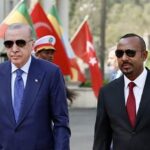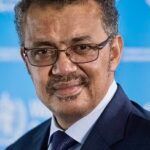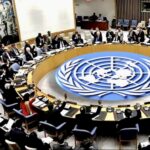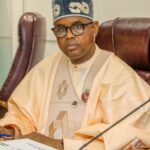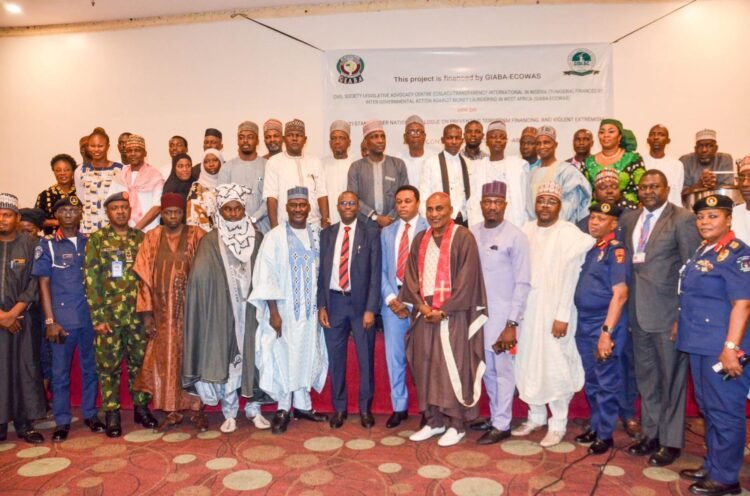By Perpetua Onuegbu
The Executive Director, Civil Society Legislative Advocacy Centre and Head, Transparency International in Nigeria Mr Auwal Rafsanjani, says illegal money exchangers are responsible for terrorism funding.
Rafsanjani said this at a Multi-stakeholder National Dialogue on Preventing Terrorism Financing and Violent Extremism on Wednesday in Abuja.
He said terrorism constituted a global threat, and that Nigeria, unfortunately, was one of the countries that faced high level of terrorism.
“The financial sector, has been exploited for terrorism financing. The use of the financial sector indicates the increasing capabilities of some terrorist groups.
“These include the Bureau de Change operators, Point of Sale (POS) devices, wire transfers and Designated Non-Financial Businesses and Professions, among other enabling platforms expanding the scope and depth of terrorism financing.
“It is worrisome that illegal money exchangers including Bureau De Change have been featured in several terrorism financing investigations.
“The 2022 National Inherent Risk Assessment of Terrorism Financing report reveals that between 2019 and 2022, about 19 companies were linked to illegal money exchangers,” he said.
He added: “Who have used their companies to mingle funds considered to be linked to terrorism financing.
“Illegal money exchangers are not under any form of regulations and as such, they implement any preventive measures.
“The activities of the illegal money exchangers provide a channel for moving illegally obtained funds for terrorism financing.”
He added that poor governance and corruption also drive terrorism and violent extremism and called for concerted efforts by stakeholders to curb the menace.
Mr Edwin Harris, the Director-General, GIABA, facilitator of the dialogue said that the organisation in 2018 developed a regional network to combat the challenge of terrorism financing.
“Thus, the primary mandate of GIABA is to develop measures to protect the economies of member States from abuse and the laundering of the proceeds of crimes and to strengthen cooperation among its member states.
“Nigeria has immensely benefited from GIABA capacity building programmes, sometimes the gaps in our lifes is the gap of knowledge, when we build capacity we close the gaps.
“One key issue is the proliferation of small arms and light weapons because of money in wrong hands; we must all come together to support our security agencies,” he said.
He was represented by Mr Timothy Melaye, Country Head, GIABA.
The News Agency of Nigeria (NAN) reports that GIABA is a specialised Institution of Economic Community of West African Stated (ECOWAS), to coordinate the fight against money laundering and terrorism financing in West Africa.
Speaking on the efforts of the commission to stop the funding of terrorism, Mr Ola Olukoyede, the Executive Chairman of the Economic and Financial Crimes Commission (EFCC), said the commission had focused on trailing funds.
“Part of the focus of the EFCC in the quest to tackle terrorism and violent extremism in that region is to follow the funds trail of critical actors in the region and cutting off the supply line of illicit funds to known criminal groups.
“This responsibility has seen the Commission pay more attention to the movement of funds by NPOs in the region who are now required to make a declaration to the EFCC.
“Indeed the enactment of the Money Laundering (Prevention and Prohibition) Act, 2022 and the Terrorism (Prevention and Prohibition) Act, 2022 have strengthened the anti-money laundering and terrorism financing framework,” he said.
On his part, the Chairman, Independent Corrupt Practices and other Related Offences Commission (ICPC), Dr Musa Aliyu, said poverty and illiteracy had been identified as some of the main causes of terrorism in Nigeria.
“These twin ills must be tackled effectively to stop extremism and violent dissent. Bad governance and corruption have a direct relation with the prevalence of poverty and illiteracy.
“The ICPC therefore, has an active role to play in the prevention and elimination of these vices that create the conditions that allow extremism and terrorism to take root in the society.
“Our approach encompasses not only rigorous enforcement but also preventive measures aimed at fostering economic and social development,” he said.
Mr Akintunde Rotimi, the Chairman, House Committee on Media and Public Affairs, said terrorism and violent extremism continued to pose serious threats to national security in Nigeria, particularly in the northeast.
He added that the crimes have had negative consequences in all facets of life in the North-East and across the entire Northern Nigeria.
“The Nigerian government has expended a lot of resources geared towards reversing this trend, and I dire say that there is a reduction in the occurrences of extremism and violent crimes in recent time in Nigeria.
“Unmitigated illicit financial flows have significant impacts on terrorism financing affecting Northeast Nigeria by undermining security, obfuscating financial trails and facilitating transnational terrorism.
“We are aware that preventing the funding of terrorist organisations is essential to this goal and it is a key part of the battle against extremist ideologies that endanger our society.
“Nigeria has taken a multi pronged strategy to disrupt and dismantle terrorist financing networks after realising the serious consequences of terrorism financing,” Rotimi said.
He said that to detect, track and block the transfer of monies that supported terrorism, legislation such as the Terrorism Prevention and Prohibition Act 2022, should be effectively put to use.
Rotimi noted that the CBN/Anti-Money Laundering and Combating the Financing of Terrorism 2022 and the regulation for the execution of targeted financial sanctions on terrorism and terrorism financing had been helpful. (NAN)(www.nannews.ng)
=========
Edited by Ali Baba Inuwa


